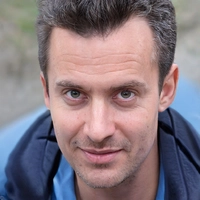Pope Francis Under Scrutiny for Alleged Use of Homophobic Slur
In a closed-door meeting with Italian bishops, Pope Francis reportedly used a derogatory term aimed at the LGBT community, sparking controversy and raising questions about his stance toward inclusivity. During the discussion about whether gay men should be permitted to train for the priesthood, Pope Francis reiterated a traditionalist view, asserting they should not.
The term Pope Francis allegedly used, 'frociaggine,' is an extremely offensive slur in Italian. This claim was reported by two of Italy's largest newspapers, La Repubblica and Corriere della Sera. Corriere della Sera suggested that the Pope might not have understood the full extent of the term's offensiveness due to a possible lack of familiarity with Italian colloquialisms.
Contrasts with Previous Stances
This incident starkly contrasts with some of Pope Francis's previous actions, where he appeared to adopt a more welcoming approach towards the LGBT community. In 2013, he made headlines when he stated, 'If someone is gay and he searches for the Lord and has good will, who am I to judge?' This appeared to signal a shift towards a more accepting attitude within the Catholic Church.
As recently as 2022, Pope Francis allowed priests to bless members of same-sex couples, a move that was seen as progressive by many. Despite these gestures, the incident with the Italian bishops brings into question how deep and genuine this inclusivity runs within the highest echelons of the Church.
Historical Context and Current Doctrine
The supposed use of the homophobic slur by Pope Francis is particularly notable in light of the Church's historical stance on homosexuality. A 2005 Vatican document explicitly stated that practicing homosexuals and those with 'deep-seated' homosexual tendencies or support for the 'gay culture' should be barred from entering the priesthood. This policy has not been officially overturned, despite the more open and inclusive statements made by Pope Francis in recent years.
The Catholic Church has long struggled with its relationship to the LGBT community. For decades, the Church has held firm to doctrines that many consider outdated and exclusionary. Pope Francis's alleged comment draws attention to this ongoing tension within the Church's teachings and practices.
Defenders and Detractors
Defenders of Pope Francis argue that the incident might be a misunderstanding stemming from his limited grasp of certain Italian colloquialisms. They suggest that given the Pope's Argentine heritage and his primary use of Spanish, he may not have fully comprehended the offensiveness of the term 'frociaggine.' However, this defense isn't sufficient for many who expect a higher level of cultural sensitivity and awareness from a global religious leader.
Critics argue that, intentional or not, the Pope's use of such a term only serves to perpetuate a culture of exclusion and bias within the Church. They point out that words have power, and leaders, especially those in as influential a position as Pope Francis, must be held accountable for their language and the messages they send.
The Broader Impact
On a broader scale, this incident potentially harms the ongoing efforts to reconcile the Catholic Church with the LGBT community. The reported use of a slur casts a shadow over prior inclusive messages and actions, making it harder for those within the community to feel accepted and valued within the Church's fold.
The LGBT community and its allies have long called for deeper structural changes within the Church, advocating for a theology that fully embraces all individuals, regardless of sexual orientation. This incident suggests that such changes might still be a long way off.
Looking Ahead
For now, the controversy over Pope Francis's alleged use of a homophobic slur remains a point of contention and discussion. It serves as a stark reminder of the challenges that lie ahead in the Catholic Church's journey towards greater inclusivity and acceptance. Whether this episode will prompt a reassessment of the Church's approach or merely be dismissed as a misunderstanding remains to be seen.
As the world watches and waits, the Catholic Church finds itself at a crossroads. The choices it makes in the coming years will be crucial in determining whether it can become a truly inclusive institution or whether it will continue to grapple with the tensions between doctrine and modernity.





Write a comment